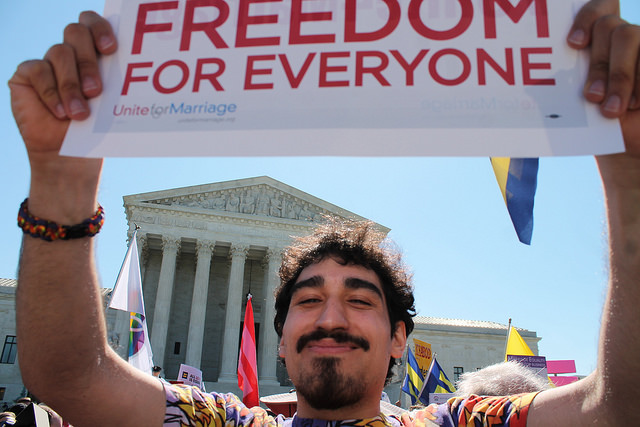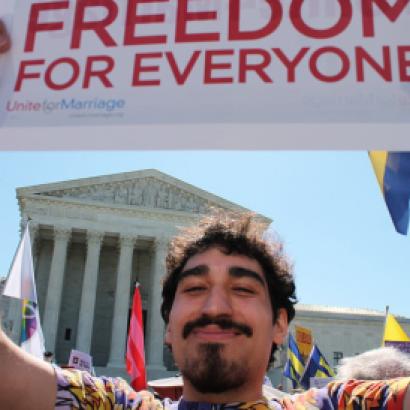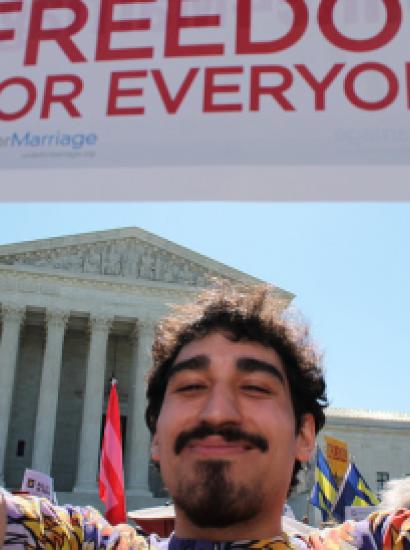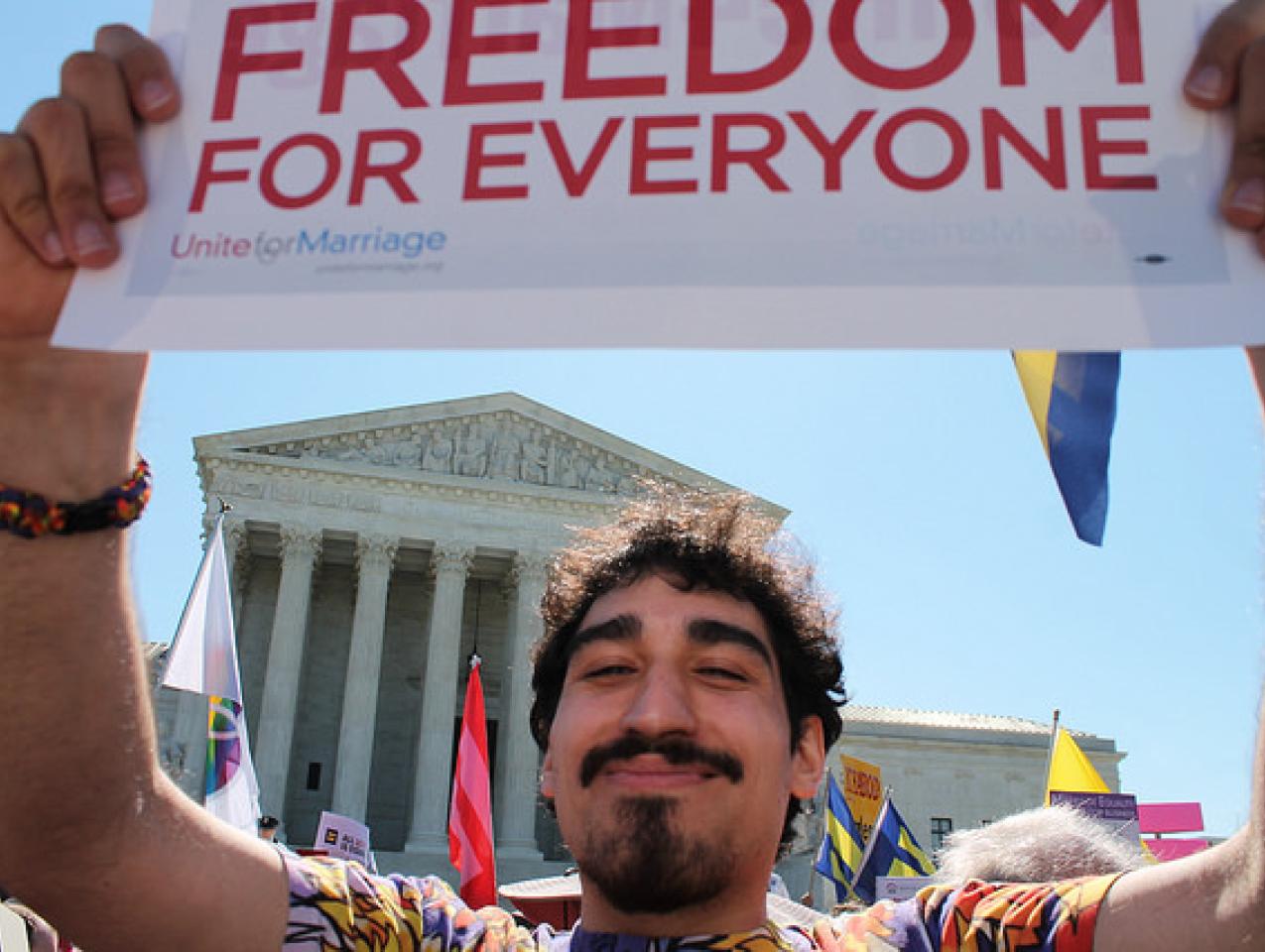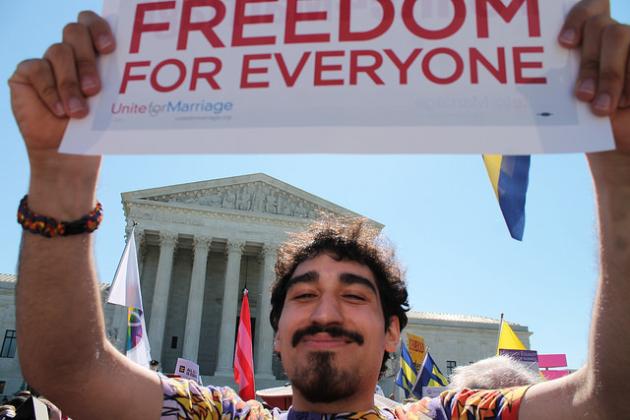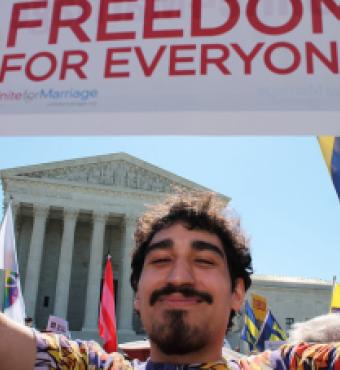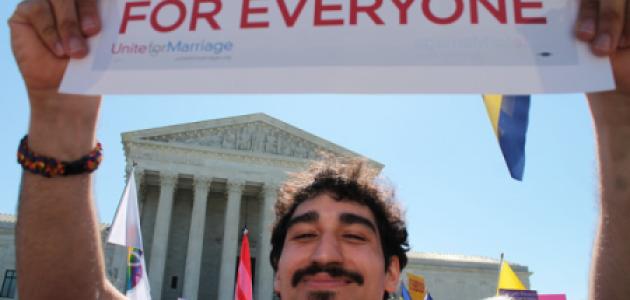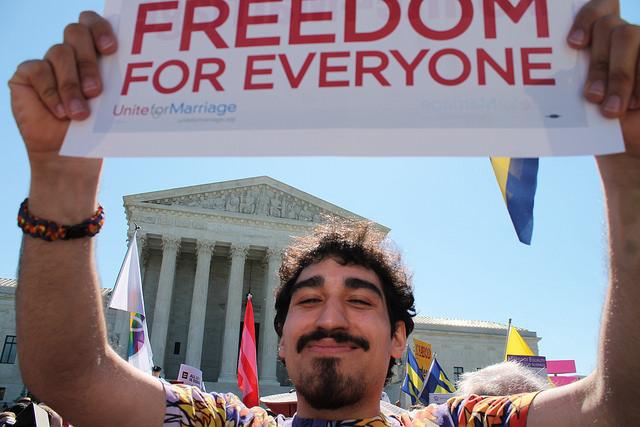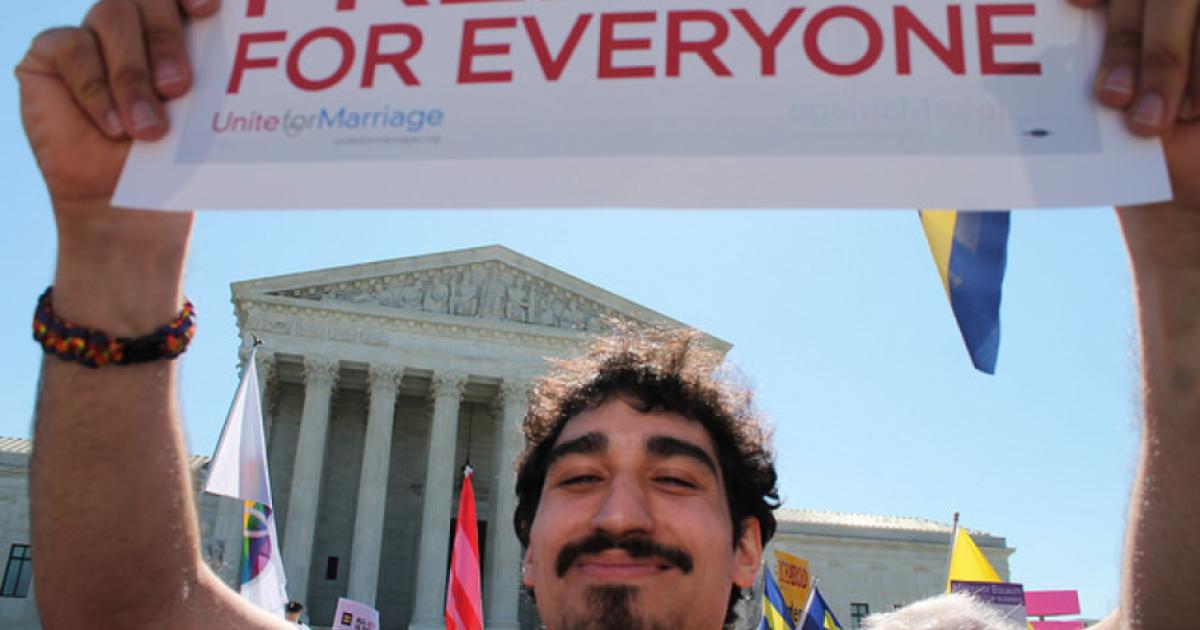- Law & Policy
Last month, Judge Carlton W. Reeves of the Northern District of Mississippi handed down an extraordinarily misguided decision in Barber v. Bryant by issuing a preliminary injunction against House Bill 1523, Mississippi’s newly passed religious liberty law, just minutes before it was to go into effect. The court found that House Bill 1523 likely denied the plaintiffs—a diverse group of supporters of same-sex marriage—their rights under Fourteenth Amendment’s Equal Protection Clause, and, furthermore, established preferred religious beliefs, violating the First Amendment’s Establishment Clause. Phil Bryant, the governor of Mississippi, has filed papers in the Court of Appeals to dissolve that temporary injunction. State Attorney General Jim Hood has declined to join in that defense of the Mississippi law. As someone who gave some brief advice and encouragement to Mississippi’s appellate lawyers, I think that their motion should be granted, given the major points of principle that it raises.
To put matters in context, HB 1523 was the latest effort to provide explicit protection of religious liberty and moral conscience for those individuals who are opposed to same-sex marriage. At no point does the legislation limit the right of any person to participate in a same-sex marriage, which would be an obvious nonstarter given Obergefell v. Hodges, a highly dubious Supreme Court decision, which held that the Equal Protection Clause of the Fourteenth Amendment guaranteed that right to all persons. House Bill 1523 does not seek to dislodge or compromise that decision. Indeed, it would have been dead on arrival if it had attempted any such maneuver. But as is often the case, no one quite understands the scope of a particular constitutional right until its correlative duties are accurately specified.
The correct reading of Obergefell comes in two parts. First, no private person can seek to block the performance of a same-sex marriage. Second, some public official must be prepared to solemnize those marriages, so that they have the full force and effect as traditional marriages. What the decision in Obergefell did not do, and indeed disclaimed, was the notion that people who are opposed to same-sex marriages had to participate in their validation. Even public officials can escape that duty under House Bill 1523 so long as alternative arrangements are made to ensure that “the authorization and licensing of any legally valid marriage is not impeded or delayed as a result of any recusal.” House Bill 1523 thus represents the kind of sensible accommodation that has long been the hallmark of religious liberty.
The explanation for this distinction is not hard to find. When any state bans same-sex marriage, it is using its monopoly power to block the consensual activities of private persons. They have no place else to go once that ban is in effect. The two conditions above neutralize that blocking power. But that mission is fully accomplished without conscripting other individuals to participate in these relationships, or indeed any other arrangements. The correlative duty commanded by Obergefell is noninterference; it is not support, participation, or approval. The Mississippi statute tries to cement that understanding into law by enacting three related provisions.
First, House Bill 1523 protects only those individuals with “sincerely held religious beliefs or moral conviction” that marriage is properly confined to one man and one woman, that sexual relationships should be limited to such marriages, and that the terms male and female refer to “an individual’s immutable biological sex as objectively determined by anatomy and genetics.” The protection applies to participation in religious services, but also to all employment-related and housing activities subject to the same caveat. The wording was chosen in part to make it clear that no explicit preferences were given to religious persons or groups on this score, in order to forestall the charge of favoritism. But there is little doubt that the religious element was the primary motivation for the provision.
Judge Reeves struck down the Mississippi statute because he did not grasp the fundamental distinction between forcing others to yield to your beliefs and just asking to be left alone. His confusion is evident from his opening salvo that quotes the Supreme Court in Epperson v. Arkansas (1968) as saying that the Establishment Clause of the First Amendment means that the state “may not aid, foster, or promote one religion or religious theory against another.” He then uses McCreary County v. American Civil Liberties Union (2005) to argue that it violates the Establishment Clause—“Congress shall make no law respecting an establishment of religion”—“when the government acts with the ostensible and predominant purpose of advancing religion.”
At no point, however, does Judge Reeves attempt to put either of these broad generalities into context. And context matters. The words in Epperson were directed to an Arkansas law that prohibited the teaching of evolution in public schools—a clear instance of a state-compelled law that binds all persons inside the legal system. No one could describe this as a situation in which private parties sought to run their own lives and businesses free of government interference. Similarly, McCreary County struck down two county resolutions that announced that the Ten Commandments were Kentucky’s “precedent legal code,” and authorized extensive religious exhibits on public property intended to extol its virtues. There is no similar commitment of public resources in House Bill 1523. It is practically legal malpractice to rip out of context words that were rightly intended to knock down state coercion for religion and the state subsidy of religion while invalidating a statute whose whole purpose was to insulate private parties from any form of public coercion.
One irony in this case is that Judge Reeves noted, with apparent approval, that Mississippi had passed its own Religious Freedom Restoration Act. Mississippi’s law, in line with the federal version, provides that the state may not substantially burden a person’s exercise of religion, unless it does so to further a compelling governmental issue by the narrowest form possible. This law has a broader scope than House Bill 1523, but its protection is not absolute, although it may be when these two conditions are satisfied. When the original federal statute was passed in 1993, the phrase “compelling state interest” had a reasonably clear meaning, according to which some powerful necessity had to be demonstrated to override the original constitutional right. The Mississippi statute refers to “a government interest of the highest magnitude.” Traditionally, this language meant that the state could curb religious freedom in order to prevent riots in public places. But in line with the general jurisprudence of the time, such instances were few and far between.
Not any more, one can at least argue. More concretely, the argument has been commonly made that the elimination of discrimination in all areas of American life counts as a compelling state interest, of course of the highest magnitude. Just that argument was put forward successfully in Elane’s Photography v. Willock (2014), where the New Mexico Supreme Court held that its state’s Human Rights Act prevented all private discrimination on grounds of sexual orientation. Thus when Elane’s refused to photograph a commitment ceremony for a lesbian couple, at a time when same-sex marriage was not legal in New Mexico, its appeal to the First Amendment protections of religion and speech fell on deaf judicial ears, in a case that the United States Supreme Court denied certiorari. It is therefore reasonable for the defenders of religious liberty to think that the potential evisceration of RFRA required the sterner protection of House Bill 1523.
In this case, they are right. Because there is only this narrow focus on religious and moral convictions, it is virtually impossible to think of any situation where the exercise of that right would in fact cause actionable dislocations to other people. The word “actionable” has to be inserted because otherwise any distaste for the actions of others, e.g. flag burning, becomes a harm that must be put into the scales, which means that every refusal to deal necessarily hurts the individuals who were rejected and their sympathizers.
Nonetheless, this overbroad account of harm resonated with Judge Reeves, who noted that the various plaintiffs could suffer some irreparable harm if the injunction in question were delayed. But at this point, a cold look at the relative tradeoffs explains why these alleged harms should be disregarded. On the one side, the targeted individuals may face the choice of having to go out of business to protect their religious or moral conscience. This is no better than the choice between your money and your life. But just what is the harm on the other side? There are thousands of employers and landlords, and dozens of vendors that are eager to cater to the interests of gay and lesbian couples. Indeed, it is highly unlikely that they would (as is their right) hire a photographer or caterer who was unsympathetic to their views. So how do individuals with many choices suffer from irreparable harm when persons who have no choice do not? The point should be as clear to the opponents of religious liberty as to its defenders.
Given this current impasse, it is critical to rethink the basic legal rules on private discrimination that set the stage for Barber v. Bryant. House Bill 1523 was drafted in ways in which the right to refuse service was tied to religious and moral convictions. Otherwise, a broader right would run into a collision course with one of the most venerable parts of the Civil Rights Act of 1964, the public accommodation provisions embodied in Title II. Historically, Title II had two potent justifications. The first is that it was a necessary corrective against massive abuses of state power under Jim Crow. Thankfully, that risk is gone today. The other justification was that the traditional common law view—still good today—that any common carrier or public utility, by virtue of holding a monopoly position, was duty-bound to take all customers on reasonable and nondiscriminatory terms. When ordinary people have no where else to go for power, water, or transportation, they are entitled to get these services at reasonable rates. The rule covered all cases of racial discrimination, but it was not limited to it.
The implicit drawback of this position was that there was no duty to serve anyone in a competitive industry, precisely because disappointed customers had a full range of alternatives to which they could turn. The common law rightly held that refusals to deal in competitive industries counted as basic liberties. In the progressive run-up to the New Deal, the argument was put forward that every refusal to deal in economic matters was an exercise of coercion—the kind of coercion that the state had a compelling interest to stop. That misguided view marked the end of economic liberties in all cases, and led to the passage of laws like the 1935 National Labor Relations Act, which forced collective bargaining in otherwise competitive industries.
The battle over religious liberties is a novel extension of the older war in one of the few bastions of individual liberty. Until recently, the older view on religious liberties exempted private religious beliefs from this hopelessly broad definition of coercion. But with the new progressive resurgence, that protected liberty shrinks while the domain of government power expands. It is a genuine intellectual tragedy that the people who speak on behalf of religious liberties—including the plaintiffs in Barber, many of whom represent gay, lesbian, and transgender people—can be so alert to their own claims of personal liberty, and yet so insensitive and indifferent to the claims of others.







